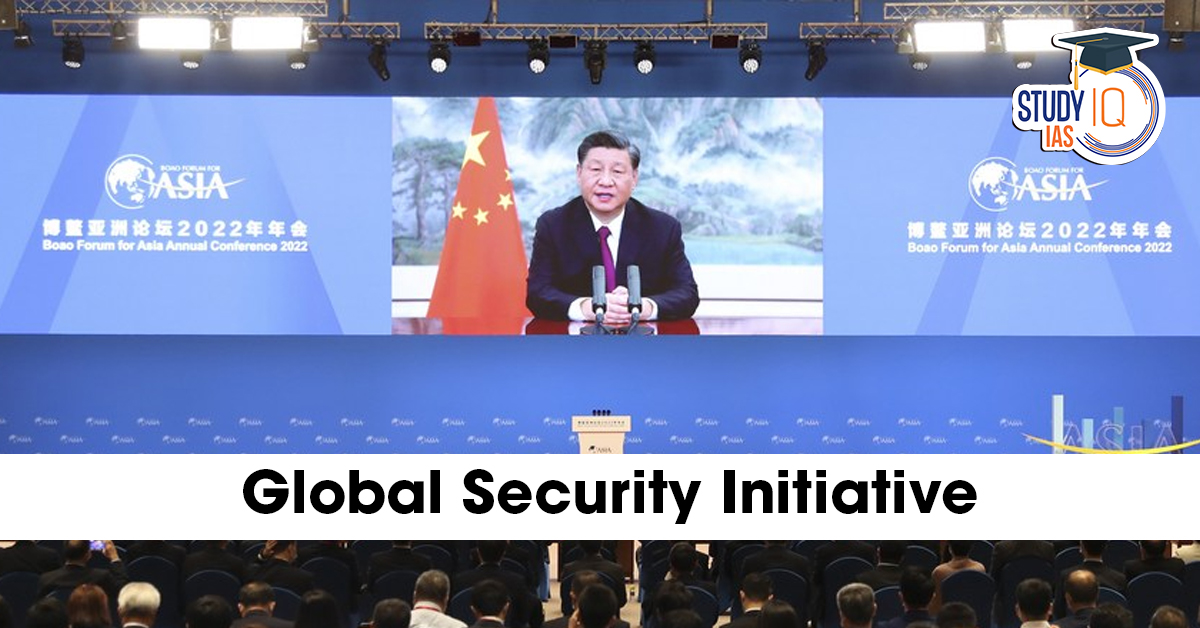Table of Contents
Context: Nepal PM expressed support for China’s Global Security Initiative while attending the Shanghai Cooperation Organisation summit in Tianjin.
What is Global Security Initiative/Alliance?
- Launch: Proposed by Chinese President Xi Jinping in April 2022 at the Boao Forum for Asia.
- Aim: To present an alternative security framework led by China, countering the U.S.-led alliances like NATO and AUKUS.
- Promote what China calls “common, comprehensive, cooperative, and sustainable security.”
Core Principles
- Respect for the sovereignty and territorial integrity of all nations.
- Opposition to Cold War mentality and bloc confrontations.
- Dialogue and consultation over conflict.
- Addressing both traditional and non-traditional security threats (terrorism, cybersecurity, pandemics, and climate change).
- Indivisible security — no country should pursue its own security at the expense of others.
Implementation
- Managed by the Global Security Initiative Concept Paper (2023) issued by China’s Ministry of Foreign Affairs.
- Promotes Belt and Road Initiative (BRI) linkages, multilateral dialogues, and a greater role for the Shanghai Cooperation Organisation (SCO) and BRICS.
China’s Global Security Initiative (GSI)
Chinese President Xi Jinping introduced China’s Global Security Initiative (GSI) in April 2022 as a vision to resolve global security problems by cooperation, mutual respect, and multilateralism. It aims to present an alternative to Western-dominated security frameworks and places emphasis on China’s contribution to the international order.
Key Principles of GSI
- Common Security – Providing security to all states, not select ones.
- Respect for Sovereignty – Resisting interference in internal matters and showing respect for territorial integrity.
- Indivisible Security – Understanding that no nation can gain security at the cost of others.
- Peaceful Resolution – Promoting dialogue and negotiations over coercion or unilateral sanctions.
- Comprehensive Security – Meeting both traditional (war, terrorism) and non-traditional (climate change, pandemics, cyber threats) security challenges.
- Multilateralism – Promoting the UN and regional organisations in the resolution of conflict.
Objectives of Global Security Initiative
- Against unilateralism and Cold War thinking, particularly U.S.-dominated alliances.
- To enhance the developing nations’ voice in the governance of global security.
- To advance China’s conception of a multipolar international order.
- To extend China’s influence through projects associated with the Belt and Road Initiative (BRI).
GSI Relevance for India
- India is cautious about the GSI, which could enhance China’s strategic reach in Asia.
- India favours multilateral security but is suspicious of China’s territorial ambitions and belligerent policies.
- GSI can affect India’s neighbourliness relations if China employs it to strengthen relationships in South Asia.
Criticisms
- Detractors claim that it is a geopolitical weapon to checkmate U.S. influence.
- Lack of a transparent mechanism for execution.
- Fear of China’s own assertive behaviour in the South China Sea and along the India-China border.


 German Chancellor Visit to India in 2026...
German Chancellor Visit to India in 2026...
 Iran Nuclear Crisis and India’s Role f...
Iran Nuclear Crisis and India’s Role f...
 H1B Visa Program, Beneficiaries, Eligibi...
H1B Visa Program, Beneficiaries, Eligibi...

























